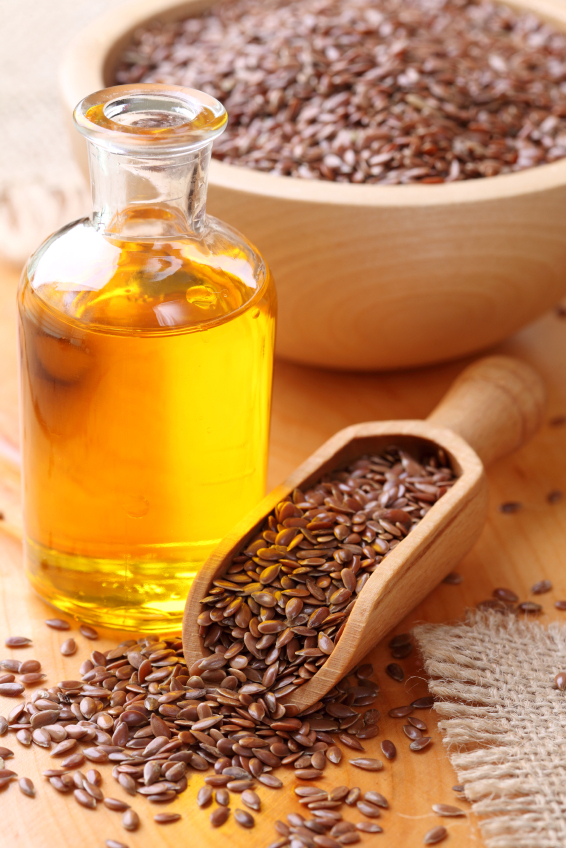Latest Research – There is a link between type of fats and poor results from exercise.
Most people in Australia and other developed countries for that matter don’t get enough of the right fats that improve heath and results from exercise. To make matters worse, it's very easy to get too much of the wrong fats - the type that erode health and therefore make great results from exercise, virtually impossible.
In this article, i'll show you have to correct the balance, simply, easily.
The type of fats I'm talking about are the omega-3 essential fats and the omega-6.
Both are polyunsaturated fats, that have very different and non interchangeable roles in our health.
Although we're conscious, the odds are really stacked against us. The vast majority of foods we consume contain too much omega-6 and too little omega-3. In fact, most people’s diets contain 20–25 times more omega-6 than omega-3.
Leading researchers show us that this needs balance needs to be more like for every 4 grams of omega-6, we need 1 gram of omega-3 in our diet.
Unfortunately this imbalance is the cause of most conditions that destroy our quality of life, such as obesity, cardiovascular disease, dementia and type -2 diabetes, just to name a few.
The reason is, this imbalance in our essential fat intake becomes built-in to every cell in out body. To give you some idea of how much this omega-3 deficiency screws with our biochemistry, sports scientists have also linked this imbalance to poor results from consistent exercise training.

That’s right, if you’re one of those people that exercise religiously but don’t really see great result from all those hours clocked-up in the gym, you can bet your behind that a chronic deficiency in the omega-3s is a big contributor.
Fats and poor results from exercise ...there is a link!
The vast majority of foods we consume contain too much omega-6 and too little omega-3. This imbalance becomes built-in to every cell in out body. when it comes to exercise, this becomes a real problem.
One of their primary roles in cells and tissues is the modulation (control) of inflammation. Exercise promotes a certain amount of 'healthy' inflammation from which the body recovers and adapts. The problem resides in the fact the omega-3’s promote very moderate inflammatory mediators called “ecosaniods”. However, the omega-6’s produce highly destructive, pro-flammatory ecosaniods that actually damage cells, tissues and our health.
Remember, most of us have 20-25 times more omega-6 built-into our cells than we need.
Peak performance, building muscle or and shedding kilos of body fat are all by-products of better health. Better health only comes from an optimum approach to nutrition. As I said, most people’s diets contain 20–25 times more omega-6 than omega-3. This imbalance in our essential fatty acid intake promotes chronic inflammation in tissues throughout the body – a condition that makes fat loss and efficient recovery from exercise virtually impossible.
Just give me the flax!
Popping a pill won't solve a complex problem. Case point, some health conscious people assume that one or two fish oil capsules each day, will correct this imbalance and solve the problem.
Omega-3 supplements are a multibillion-dollar a year industry world-wide. The sale of omega-3 supplements has quadrupled in the last 3-5 years. But the incidence of chronic omega-3 deficiencies in the general population just keeps escalating.
Popping a pill isn’t the solution to achieving optimum health. First make conscious, accountable choices about the food you eat every day. That means choosing more foods that are rich in omega-3 and drastically reducing foods that are high in omega-6. Increase the ratio of omega-3 fatty acids in the diet is the key – not simply the amount of omega-3. However this is easier said than done. The foods most people eat are completely dominated by the omega-6 fats.
Flaxseeds (or linseeds as they are also known) are emerging as one of nature’s true super foods. Not only are they one of very few foods that contain a very high ratio of omega-3 that also contain a stack of other nutrients essential to great health.
It's all in the flax...
One hundred grams of flax seeds will provide about 35-grams of oil (essential fats, lecithin and phytosterols), 26-grams of protein and 14-grams of fibre. Flax seeds are the richest known source of ligans, molecules with anti-viral, anti-bacterial and anti-cancer properties. They are also a richest source of mucilage which is a special kind of fibre that acts as a natural laxative and protects against bowel cancer. Mucilage also helps stabilize blood glucose levels. Additionally, flax seeds contain a rich array of minerals, vitamins E and carotene and the energy-activating B-group vitamins.

In terms of omega-3 specifically, flaxseeds cannot be matched by other foods considered to be a “rich source”. For example flaxseeds provide a 5:1 ratio of omega-3 to omega-6 – the highest of any food known. In terms of dose, flaxseeds provide a whopping 23-26 grams of omega-3 per 100gms. Compare this to another “rich source” of omega-3, tuna fish that provides a measly 0.2 grams of omega-3. Per 100 grams.
Get your flax in order...
You can start to see why incorporating flaxseeds into your daily nutrition plan will go a long way to helping correct this chronic essential fat imbalance that most people have. Best of all, crush flaxseeds are inexpensive and taste pretty good.
Crushed flaxseeds provide a nutty, crunchy texture that adds a new flavour dimension to your liquid nutrition and desserts. Crushed flaxseeds can also be sprinkled on salads and vegetables for a real taste sensation.
For more delicious ways to incorporate the right fats, be sure to read Best Plant Sources of Omega-3
The Science
Comparisons of the effects of different flaxseed products consumption on lipid profiles, inflammatory cytokines and anthropometric indices in patients with dyslipidemia related diseases: systematic review and a dose-response meta-analysis of randomized controlled trials. Nutrition & Metabolism (Lond).
Effect of flaxseed supplementation on lipid profile: An updated systematic review and dose-response meta-analysis of sixty-two randomized controlled trials. Pharmacological Research
Lipid and Blood Pressure Meta-analysis Collaboration (LBPMC) Group. Effects of flaxseed supplements on blood pressure: A systematic review and meta-analysis of controlled clinical trial. Clinical Nutrition.
Impact of weight loss diet associated with flaxseed on inflammatory markers in men with cardiovascular risk factors: a clinical study. Nutrition Journal.
FOLLOW Dr Paul Cribb PhD.





